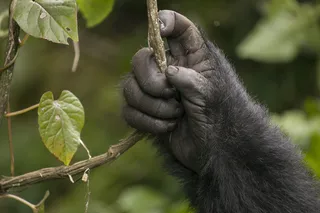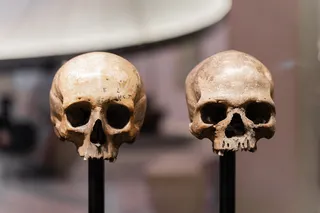Modern humans around the world have evolved to adapt to unique cultures: they speak different native languages, wear diverse clothing, celebrate varying traditions and craft distinct artifacts. These cultures are cumulative in nature — something that's passed on for generations, resulting in unique variations over time. It's long been assumed that the practice of accumulating culture and passing it down the line started some 2.6 million years ago, when humans first learned the skills to sharpen stones for toolmaking.
But new research is challenging that assumption. Researchers at the Eberhard Karls University of Tübingen in Germany have proposed that cumulative culture may not have begun with the emergence of simple stone tools, known as the Oldowan industry. In actuality, it probably started much later, says cognitive archaeologist Claudio Tennie, the senior author of the recent Science study. The scientists suggest that the earliest techniques for making stone tools can be ...














